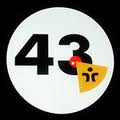
The importance of financial planning by José Cazorla y José Sellés
Today the world circulates more money than ever. Never before have there been so many companies, so many multinationals, so many services and so many leisure options. These changes are not alien to the world of soccer, which follows in the wake of the rest of the industries through its globalization and professionalization.
The sources of income of a soccer player today have nothing to do with those of his teammates twenty years ago. Today’s athletes not only have income from their sports performance, they also usually have them from sponsorships or collaborations with companies. This leads to the accumulation of a significant sum of money that clearly differentiates it from other sectors.
If when your neighbor’s salary is raised a minimum he tends to spend more, in the case of an athlete that tendency can be magnified. More if we take into account the media status that comes with dedicating yourself to football. Many athletes add up large amounts of money in a few years and no one has told them that they can only carry this rhythm of life as long as they don’t hang up their boots. The opposite also happens: an amateur soccer player seeks to get some return on his battered salary to try to double his savings over time.
Either for the first or for the second, financial planning is essential from the first minute in which the footballer decides to dedicate himself professionally to sport. Just as leading an uncontrolled life from a nutritional point of view can relegate you to the bench, bad financial habits do not give you second chances and can lead to ruin.
This management is just as important when you are active or retired, at which time your economic life undergoes an abysmal change. But to talk about it we will have plenty of lines in the next chapter…
By José Cazorla y José Sellés









